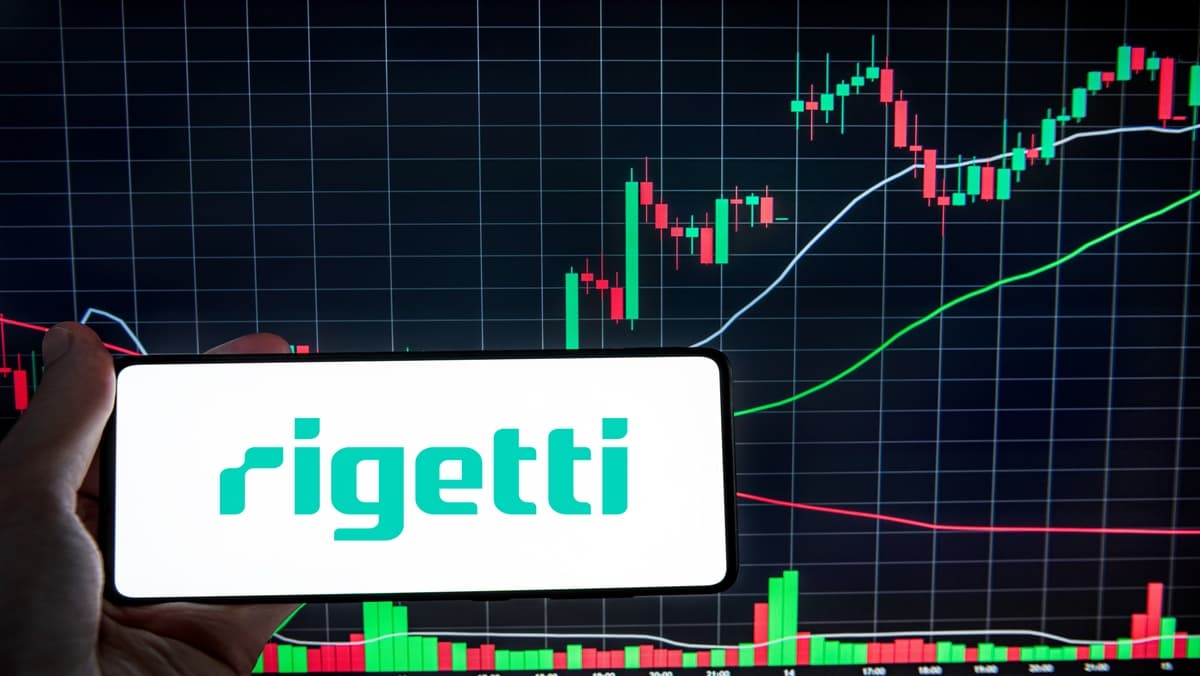Factors
Company Performance: Revenue, earnings, and profit margins of the company directly impact investor confidence and stock price.
Market Sentiment: General investor optimism or pessimism, often influenced by economic news, affects demand for the stock.
Industry Trends: The overall performance and outlook of the sector the company operates in influences its valuation.
Economic Conditions: Factors like interest rates, inflation, and GDP growth impact investment decisions and stock valuations.
News and Events: Company-specific announcements, regulatory changes, or major global events create price volatility.
Competitor Actions: Strategies and performance of key competitors can influence investor perception of the company.
Global Events: Major events such as wars, pandemics and natural disasters affect overall stock market and specific company valuations.
Supply and Demand: The basic economic principle, where higher demand pushes prices up and increased supply pushes them down, also affects stock prices.
Valuation Metrics: Price-to-earnings ratio, price-to-book ratio, and other metrics used to assess stock value influence investor decisions.
Analyst Ratings: Recommendations and price targets from financial analysts can sway investor opinion and impact stock prices.
Currency Fluctuations: Since it is a stock from Germany, currency fluctuations between euro and other currencies influence international investors and affect stock prices.
Technological Advancements: New technologies related to the industry, or the company's adoption of technologies, affect the long-term outlook.
Regulatory Changes: Regulations affecting the company or its industry can significantly impact investor confidence.
Management Changes: Changes in key leadership positions can create uncertainty and affect stock price.
Dividends: Dividend payments, if any, attract investors seeking income. Changes in dividend policy affect investor decisions.
Investor Relations: How well the company communicates with investors and maintains transparency affects stock price.
Acquisitions and Mergers: Any involvement in mergers or acquisitions causes volatility in stock price.
Interest Rates: Higher interest rates make bonds more attractive than stocks, which can lower the demand for stocks.
Inflation: High inflation negatively impacts stock valuations by decreasing consumer spending and squeezing corporate profit margins.
Investor Confidence: Overall confidence and risk appetite play important role in determining stock price.
Geopolitical Risk: Instability due to political tensions or conflicts can cause investors to sell off holdings.
Commodity Prices: The price of raw materials can indirectly impact profitability and the value of the company's stock.
Credit Ratings: Changes in the company's credit rating affects investor confidence.
Growth Prospects: Future growth rate of the company influences the premium investors are willing to pay.
Seasonality: Some industries have seasonal variations in their operations which affects their stock values accordingly.
Liquidity: How easily N9J.MU shares can be bought and sold without a major price swing affects its attractiveness.
Share Buybacks: Company buying back its own shares can artificially inflate its price.
Share Dilution: Issuance of new shares dilutes the ownership of existing shares, potentially lowering the price.
Tax Policies: Changes in tax policies impact corporate profits and investor returns.
Social Sentiment: Public perception of the company, influenced by social media and news, affects investor decisions.
Cybersecurity: Any cybersecurity incident or breach can affect customer data and disrupt company operations.
Environmental Factors: Growing environmental awareness and regulations can positively or negatively impact investor confidence in the company.
Social Responsibility: The extent to which a company demonstrates its corporate social responsibility (CSR) influence its stock price.
Trade Policies: Trade agreements, tariffs, and trade barriers can affect international business activities.
Retail Investor Interest: Increased interest in trading from small investors can impact liquidity.
Volatility: Level of market volatility influence risk assessment among investors.
Institutional Ownership: Proportion of stocks held by institutional investors.
Short Interest: Volume of shares sold short can affect price movement.
Index Inclusion: Addition of a stock to a major market index can boost its demand and raise the price.
Technological Disruption: Introduction of disruptive technologies can affect how investors rate current companies.
Patent Protection: Patents awarded to the company influence the valuation of the stock.
Market Cap: Relative to its size, the share price will be affected differently.
Debt Levels: High levels of debt may affect investor sentiment of the company.
Stock Splits: If the company splits its stocks, it may affect stock prices.
Reverse Stock Splits: If the company reverse splits its stocks, it may affect stock prices.
Earnings Surprises: When the company reports better or worse earnings than expected, the stock price will be affected.
Analyst Revisions: If analyst revises expected revenue growth, profits or price estimates it may affect stock prices.
Mergers and Acquisitions Rumors: Even if rumours are unsubstantiated, they may move the stock price.
Geopolitical Risk: Changes in geopolitical landscape may move the stock price.
ESG Factors: Environmental, Social, and Governance aspects can affect investor perception.
Global Supply Chain: Disruptions may effect stock prices.
Consumer Confidence: Changes in consumer confidence may affect investor sentiment.
Unemployment Rate: High unemployment may lead to lower sales and hurt investor confidence.
Innovation: Company's innovation and ability to create new products/services affect the stock price.
Brand Reputation: Brand reputation is critical for business.
Consumer Loyalty: Consumer loyalty affects the long-term growth of the company.
Legal Issues: Lawsuits and legal disputes may lead to uncertainty.
Political Stability: The country's political stability affects investor sentiment.
Government Regulation: Changes in regulation affects investor sentiment.
Political and Economic relationship between Germany and other countries.
Climate change effects: Climate change and regulation will affect long-term investor strategy.
Demographic Changes: Shifts in population and consumer trends are important.
Labor costs: Increasing or declining Labour costs will affect the stock price.
Rivalries and competition: Actions by other firms will cause shifts.
Capital Investment: Investments in new equipment or technology affect investor sentiment.
Product recalls: May cause stock price to fall.
Data breaches: May cause stock price to fall.
Social Media: May affect brand reputation.
Changes in accounting standards: Changes in accounting standards can significantly impact reported financial results.
Commodity Price Volatility: Commodity price volatility impacts investor confidence.
Interest Rate Hikes: Rising interest rates can reduce earnings.
Debt Restructuring: Plans for debt restructuring effect investor confidence.
Cost Cutting Measures: Strategic cost cutting affects profits.
Research and Development Investments: New breakthroughs in research.
Market Conditions: Bull or Bear markets can affect valuations.
Corporate Governance: Ethical business practices influence how investors view the company.
Foreign Exchange Rates: Movement can influence results.
Future guidance: Provided insight can affect valuations.
Seasonality: Impacts product sales.
Employee morale: High employee morale correlates to better performance.
Customer retention: affects long-term growth prospects.
Technological adoption: affect efficiency and productivity.
Expansion into new markets: growth potential.
New product launch: sales revenues and profitability.
Supply chain disruptions: profitability and delivery.
Operational efficiencies: affects profitability and competitive positioning.
Customer satisfaction: increases market share and sales.
Employee training programs: quality of products/services.
Government incentives or subsidies: increase income.
Changes in consumer tastes: affect sales and demand.
Shifting regulatory environment: Compliance costs.
Legal and regulatory costs: Affect net income.
Mergers and acquisitions: Affect market share.
Political events: Elections/policy changes can create uncertainty.
Changes in trade agreements: Influence export/import opportunities.
Tariffs and trade barriers: Impact international operations.
Economic growth or recession: affect consumer demand.
Changes in demographics: affect the demand for certain products/services.
Innovation in technology: affect business operations.
Climate change: consumer habits and behavior.
Natural disasters: May impact assets.
War: Lead to uncertainty.
Consumer spending: Impact business activity.
Government spending: affect business opportunity.
Changes in leadership: affect management strategy.
Competition: affect profit margins and market share.
Changes in laws: affect consumer demand.
Stock price manipulation: Causes stock to fall.
Insider trading: Causes the stock price to fall.
Trading volume: If stock is less liquid may lead to volatility.
Index Rebalancing: Rebalancing can affect demand.
Short squeezes: May cause stock to rise.
Dark pools: May affect stock price discovery.
Algorithm Trading: Can cause erratic price movement.
Day Trading: Affect liquidity and create volatility.
Margin calls: May cause sell-off.
Pension fund activity: Can affect long-term valuation.
Hedge fund activity: Affect short-term price fluctuations.
Sovereign wealth funds: Major changes impact valuations.
Mutual fund activity: Can change long-term trends.
Insurance company activity: Affects investor sentiment.
Broker recommendations: influence buy/sell activity.
News Sentiment: Affect investor decisions.
Social media chatter: Influence trading and sentiment.
Online forums: May create hype.
Blog activity: Influence investor decisions.
Expert opinions: Affect investor perception.
Rumors: May be unsubstantiated and lead to price swings.
Misinformation: Affect valuations.
Data leaks: Harm the stock price.
Company websites: Provide valuable insight.
Earnings calls: Affect stock trading and sentiment.
Investor presentations: Affect stock trading and sentiment.
Annual reports: Help investors gain better understanding.
SEC filings: provide insight.
Debt level: Affect long-term growth.
Current ratio: Affect investor sentiment.
Quick ratio: Affect investor sentiment.
Dividend yield: Influence investor perception.
Beta: Influence stock price volatility.
PEG Ratio: Influences stock price valuation.
Debt-to-equity ratio: Influences company financials.
Price-to-sales ratio: Influences stock price valuation.
Operating margin: Influences company profits.
Net profit margin: Influences company profits.
Free cash flow: Influences company finances.
Return on equity: Influences company performance.
Enterprise value: Influences price action.
Earnings per share: Influences price action.
Book value per share: Influences price action.
Cash flow per share: Influences price action.
Revenue per share: Influences price action.
Earnings revisions: Change price target.
Sales revisions: Change price target.
Stock recommendations: Affect investors to buy/sell.
Downgrades: Causes stock to fall.
Upgrades: Causes stock to rise.
Price targets: Influence investor perceptions.
Buy ratings: Attract new investors.
Sell ratings: Discourage investment.
Hold ratings: Discourage change.
Underperform ratings: Discourage investment.
Outperform ratings: Attract new investors.
Negative news cycles: Affect how investors view the company.
Positive news cycles: Affect how investors view the company.
Media coverage: Affect how investors view the company.
Scandals: Harm the stock price.
Controversies: Harm the stock price.
Product launches: Affect how investors view the company.
Successful acquisitions: Affect how investors view the company.
Failed acquisitions: Harm the stock price.
Management team changes: Affect investor strategy.
New products: Affect investors.
Financial performance: Affect investors.
Industry trends: Affect investors.
Economic outlook: Affect investors.
Competitive landscape: Affect investors.
Regulatory factors: Affect investors.
Risk factors: Affect investors.
Corporate governance: Affect investors.
Social responsibility: Affect investors.
Environmental sustainability: Affect investors.
Technological advancements: Affect investors.
Future growth prospects: Affect investors.
Dividend payments: Affect investors.
Share buybacks: Affect investors.
Stock splits: Affect investors.
Reverse stock splits: Affect investors.
Earnings surprises: Affect investors.
Analyst revisions: Affect investors.
Mergers and acquisitions rumors: Affect investors.
Geopolitical risk: Affect investors.
ESG factors: Affect investors.
Global supply chain disruptions: Affect investors.
Consumer confidence: Affect investors.
Unemployment rate: Affect investors.
Innovation: Affect investors.
Brand reputation: Affect investors.
Consumer loyalty: Affect investors.
Legal issues: Affect investors.
Political stability: Affect investors.
Government regulation: Affect investors.
Climate change effects: Affect investors.
Demographic changes: Affect investors.
Labor costs: Affect investors.
Rivalries and competition: Affect investors.
Capital investment: Affect investors.
Product recalls: Affect investors.
Data breaches: Affect investors.
Social media: Affect investors.
Changes in accounting standards: Affect investors.
Commodity price volatility: Affect investors.
Interest rate hikes: Affect investors.
Debt restructuring: Affect investors.
Cost cutting measures: Affect investors.
Research and development investments: Affect investors.
Market conditions: Affect investors.
Corporate governance: Affect investors.
Foreign exchange rates: Affect investors.
Future guidance: Affect investors.
Seasonality: Affect investors.
Employee morale: Affect investors.
Customer retention: Affect investors.
Technological adoption: Affect investors.
Expansion into new markets: Affect investors.
New product launch: Affect investors.
Supply chain disruptions: Affect investors.
Operational efficiencies: Affect investors.
Customer satisfaction: Affect investors.
Employee training programs: Affect investors.
Government incentives or subsidies: Affect investors.
Changes in consumer tastes: Affect investors.
Shifting regulatory environment: Affect investors.
Legal and regulatory costs: Affect investors.
Mergers and acquisitions: Affect investors.
Political events: Affect investors.
Changes in trade agreements: Affect investors.
Tariffs and trade barriers: Affect investors.
Economic growth or recession: Affect investors.
Changes in demographics: Affect investors.
Innovation in technology: Affect investors.
Climate change: Affect investors.
Natural disasters: Affect investors.
War: Affect investors.
Consumer spending: Affect investors.
Government spending: Affect investors.
Changes in leadership: Affect investors.
Competition: Affect investors.
Changes in laws: Affect investors.
Stock price manipulation: Affect investors.
Insider trading: Affect investors.
Trading volume: Affect investors.
Index rebalancing: Affect investors.
Short squeezes: Affect investors.
Dark pools: Affect investors.
Algorithm trading: Affect investors.
Day trading: Affect investors.
Margin calls: Affect investors.
Pension fund activity: Affect investors.
Hedge fund activity: Affect investors.
Sovereign wealth funds: Affect investors.
Mutual fund activity: Affect investors.
Insurance company activity: Affect investors.
Broker recommendations: Affect investors.
News Sentiment: Affect investors.
Social media chatter: Affect investors.
Online forums: Affect investors.
Blog activity: Affect investors.
Expert opinions: Affect investors.
Rumors: Affect investors.
Misinformation: Affect investors.
Data leaks: Affect investors.
Company websites: Affect investors.
Earnings calls: Affect investors.
Investor presentations: Affect investors.
Annual reports: Affect investors.
SEC filings: Affect investors.
Debt level: Affect investors.
Current ratio: Affect investors.
Quick ratio: Affect investors.
Dividend yield: Affect investors.
Beta: Affect investors.
PEG Ratio: Affect investors.
Debt-to-equity ratio: Affect investors.
Price-to-sales ratio: Affect investors.
Operating margin: Affect investors.
Net profit margin: Affect investors.
Free cash flow: Affect investors.
Return on equity: Affect investors.
Enterprise value: Affect investors.
Earnings per share: Affect investors.
Book value per share: Affect investors.
Cash flow per share: Affect investors.
Revenue per share: Affect investors.
Earnings revisions: Affect investors.
Sales revisions: Affect investors.
Stock recommendations: Affect investors.
Downgrades: Affect investors.
Upgrades: Affect investors.
Price targets: Affect investors.
Buy ratings: Affect investors.
Sell ratings: Affect investors.
Hold ratings: Affect investors.
Underperform ratings: Affect investors.
Outperform ratings: Affect investors.
Negative news cycles: Affect investors.
Positive news cycles: Affect investors.
Media coverage: Affect investors.
Scandals: Affect investors.
Controversies: Affect investors.
Product launches: Affect investors.
Successful acquisitions: Affect investors.
Failed acquisitions: Affect investors.
Management team changes: Affect investors.
```
Company Performance: Revenue, earnings, and profit margins of the company are key
Market Sentiment: Overall investor optimism influences demand for N9J.MU
Industry Trends: Performance of the relevant sector plays a vital role
Economic Conditions: Interest rates and inflation are significant
News and Events: Company-specific announcements can cause price moves
Competitor Actions: Strategies of competitors may affect investor opinion
```














